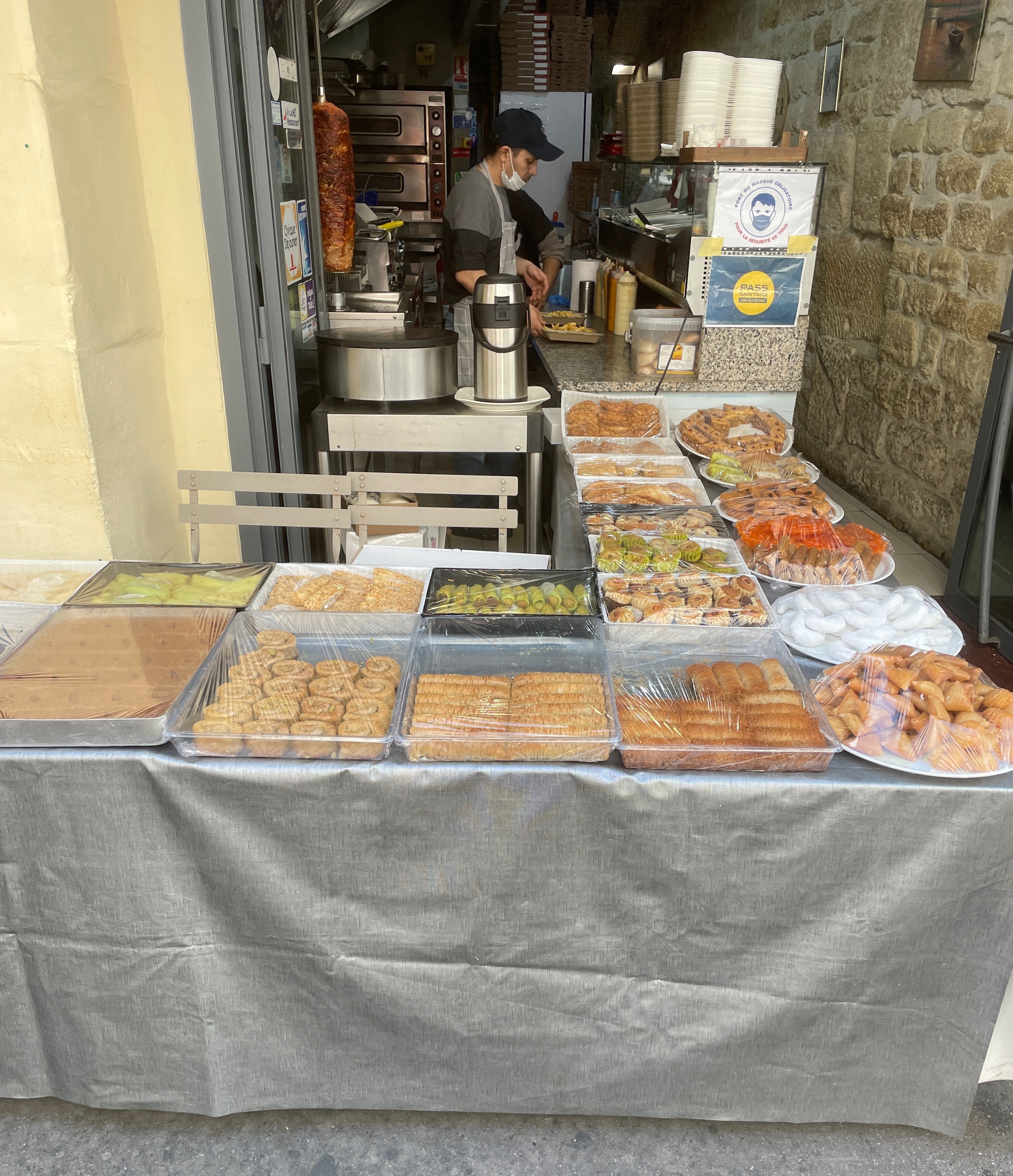
Paris’ North African communities are an important and vibrant feature of the contemporary city. Links between mainland France and North Africa date back hundreds of years, though it was during – and after – France’s second colonial empire (post 1830), that North African immigrants began to permanently settle in large numbers in Paris.
The history of French colonialism and postcolonialism is a complex one. This blog article does not endeavour to retrace that history here, though we do offer recommendations for essential further reading below.
We’ve compiled this list of places and books that will help you learn more about and understand North African heritage in Paris.
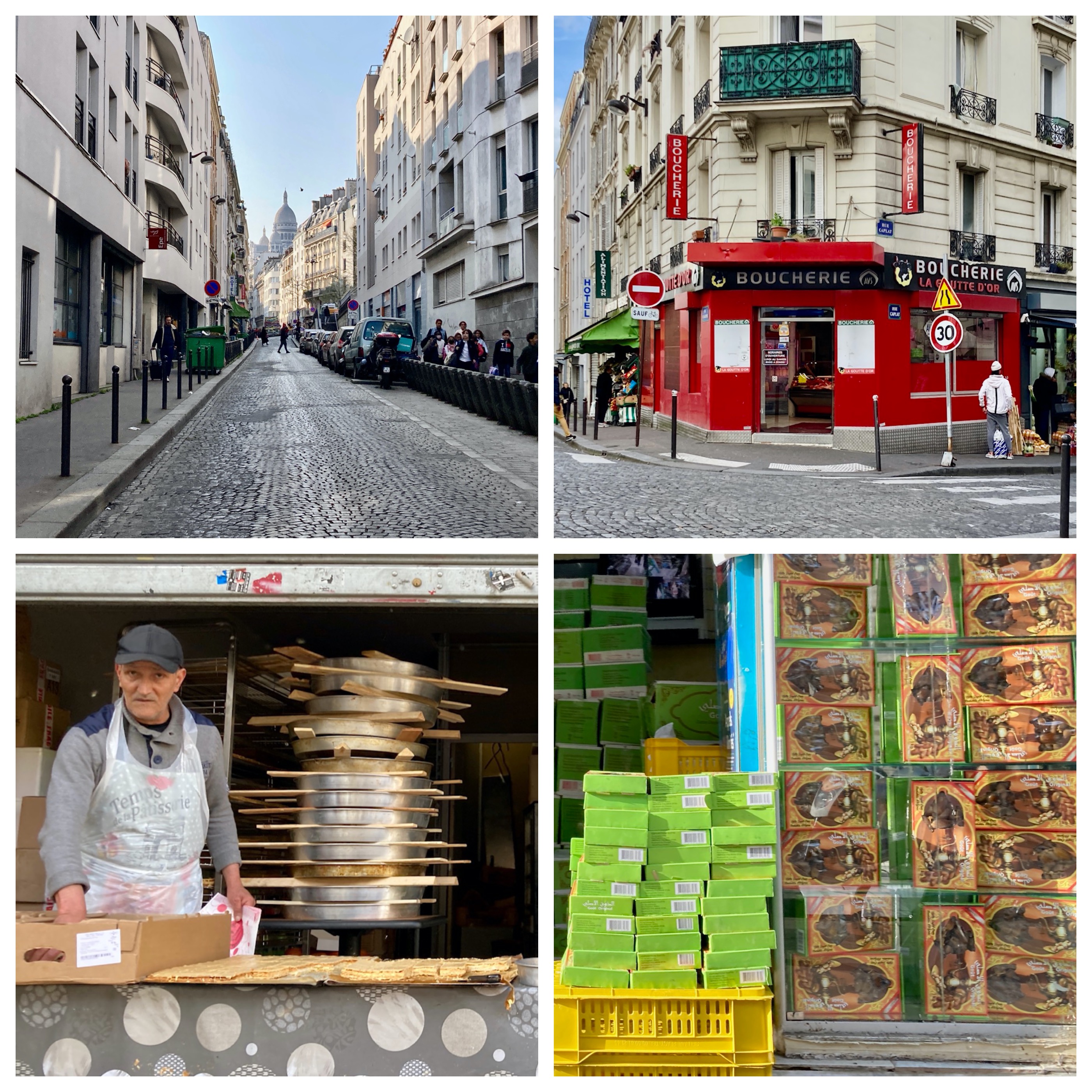
La Goutte d’Or
In the shadow of Montmartre is this thriving neighborhood and North African hub in Paris. Meaning “the Golden Drop”, bustling daily life revolves around the street of the same name, the Barbès métro and the Boulevard de la Chapelle. The latter is home to a fabulous street market, le Marché Barbès, held Wednesday and Saturday mornings. This is a great time to come and explore the area or come late afternoon during Ramadan when it is abuzz with shoppers picking up supplies for the iftar, the meal that marks the end of daily fasting.
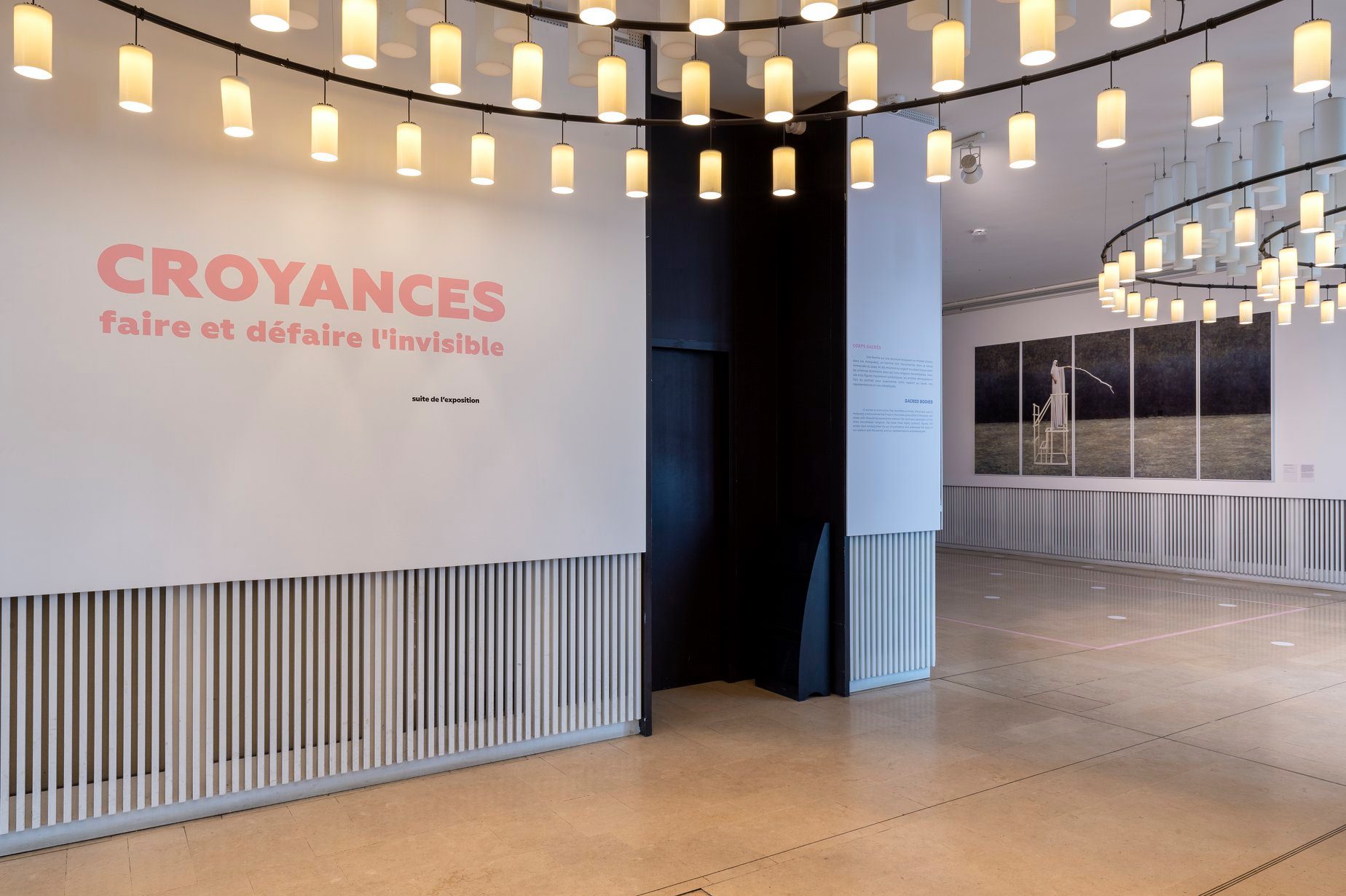
Institut des Cultures d’Islam / Facebook
Institut des Cultures d’Islam
This cultural establishment managed by the Paris City Council is found in two locations in the Goutte d’Or (19 rue Léon and 56 rue Stephenson). The multipurpose venue showcases contemporary art exhibitions, concerts, film screenings, debates, Arab language lessons, calligraphy classes, cooking classes and other cultural activities. Many of the events are free so feel free to stop by or check out its website to see what’s on.
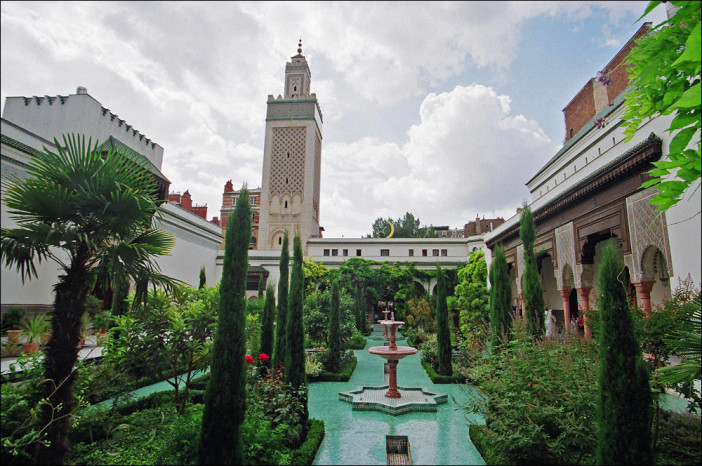
La Grande Mosque de Paris. Photo: Mosqpedia
La Grande Mosquée de Paris
The religious centre of France’s Muslim community is found in the 5th arrondissement. The oldest mosque in Paris, it was commissioned by the French State as a token of appreciation to the Muslim soldiers who fought for France in World War I and was completed in 1926. The vast complex features Moorish architecture, has a 33-metre-high minaret and a leafy courtyard where you can enjoy mint tea and North African pastry at its tea salon. It also has a renowned traditional hammam.
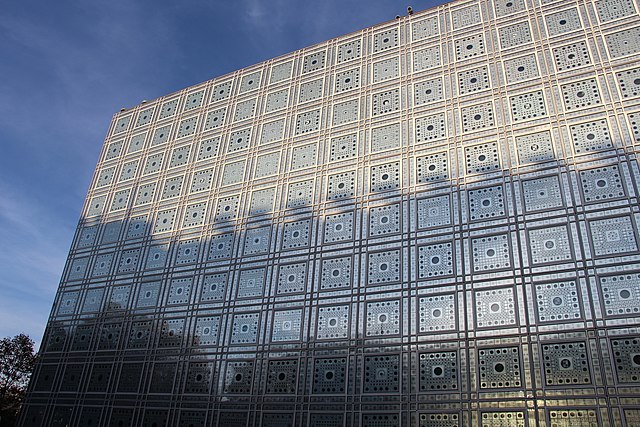
Institut du Monde Arabe. Fred Romero / CC
Institut du Monde Arabe (Arab World Institute)
The Arab World Institute was founded in 1980 by France and 18 Arab countries with the aim of researching and disseminating the cultures and spiritual values of the Arab world. Located next to the Seine in the 5th arrondissement, the Institut is housed in an impressive building designed by renowned French architect Jean Nouvel and incorporates elements of Islamic architecture. In addition to an excellent museum, temporary exhibitions, it has a wonderful free library where you can study. Before leaving be sure to go up to its free access terrace on the top floor which has great views of Paris.
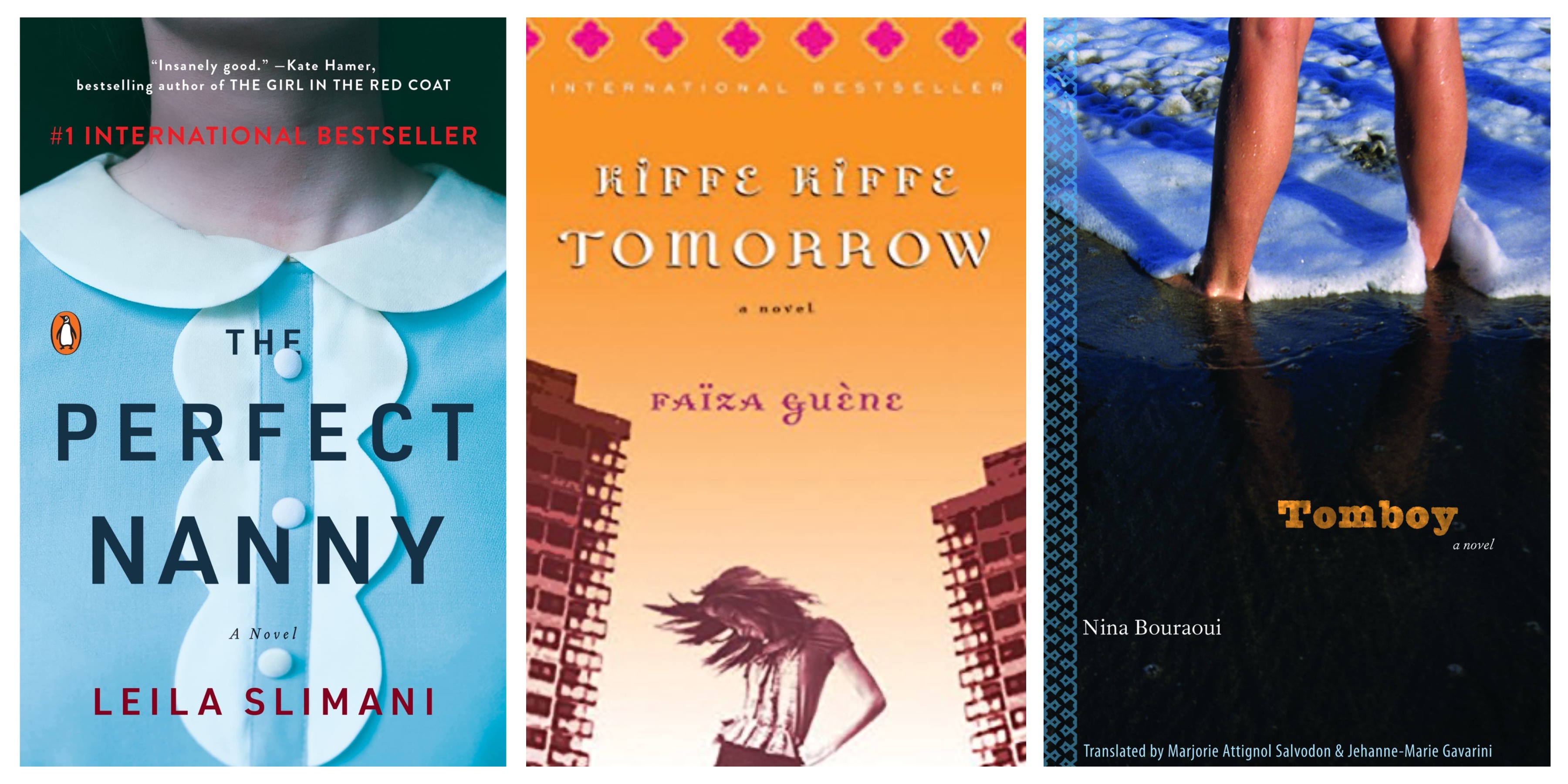
Literature by writers with North African roots
Literature is a great way to discover the unique perspective of Paris’s North African community. Dr Carine Fréville, who convenes our Diaspora and Exile module, recommends the following books by writers with North African roots and which are set in Paris.
- Kiffe Kiffe Tomorrow (US) and Just Like Tomorrow (UK) by Faïza Guène
- The Seine was Red by Leïla Sebbar
- With Downcast Eyes by Tahar Ben Jelloun
- Topographie idéale pour une agression caractérisée by Rachid Boudjedra
- Lullaby and The Perfect Nanny by Leïla Slimani
- Tea in the Harem by Medhi Charef
- Mes mauvaises pensées or Tomboy by Nina Bouraoui
Must-reads for understanding the historical context and contemporary debates
- The Invention of Decolonization: The Algerian War and the Remaking of France by Todd Shepard
- A Mission to Civilize: The Republican Idea of Empire in France and West Africa, 1895-1930 by Alice Conklin
- The Algerian War, the Algerian Revolution by Natalya Vince
- The Memory of Colonialism in Britain and France: The Sins of Silence by Itay Lotem
- Paris 1961: Algerians, State Terror, and Memory by Jim House and Neil MacMaster
- Empire’s Children: Race, Filiation and Citizenship in the French Colonies by Emmanuelle Saada
- Fantasia: An Algerian Cavalcade by Assia Djebar





